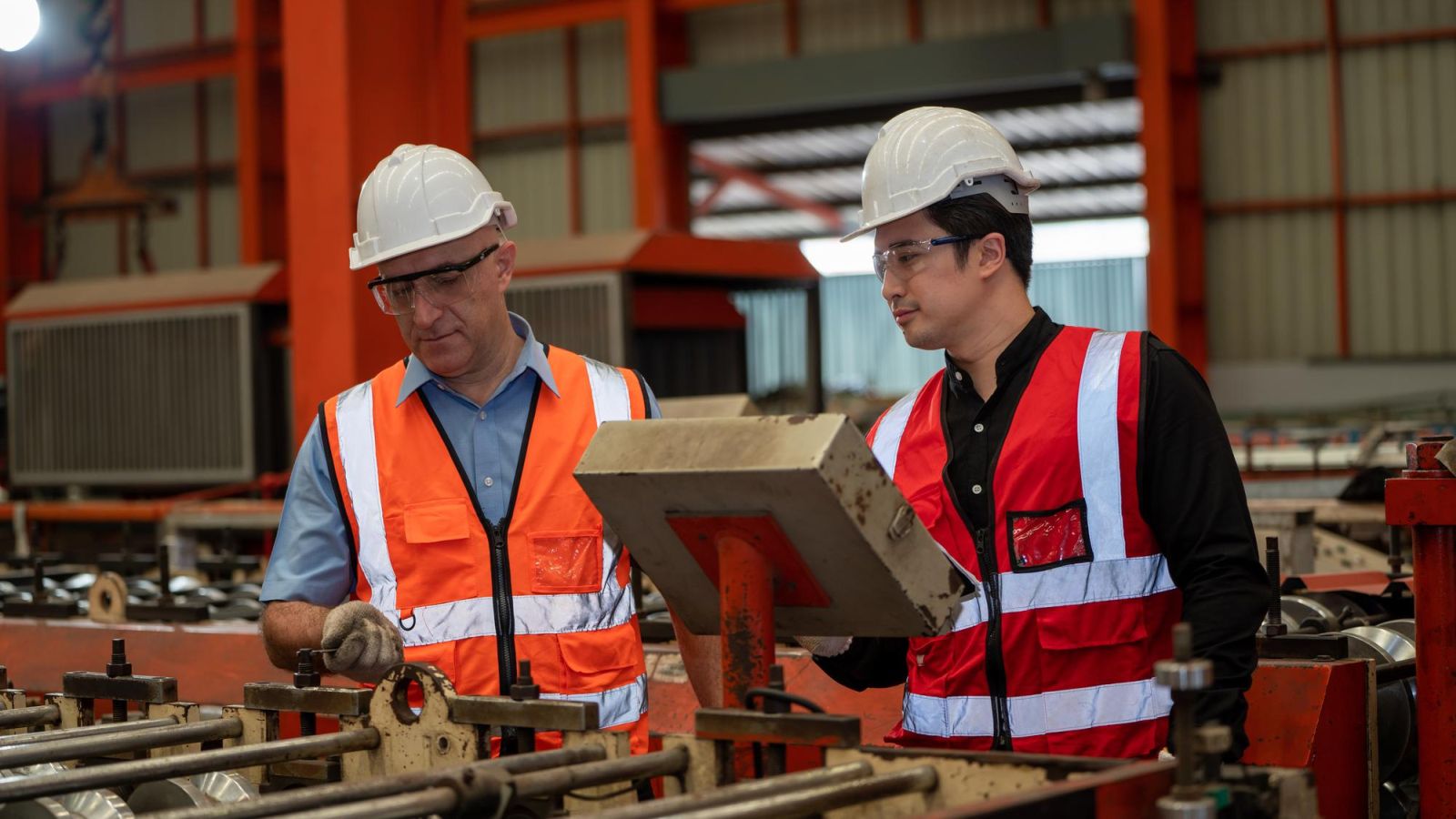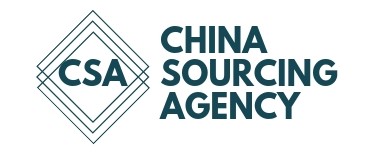From a sourcing expert’s perspective, it’s evident that China is a major force in global manufacturing, well-known for its efficient and economical production capabilities. Contract manufacturing in China offers businesses across the globe an opportunity to enhance their production efficiency, reduce costs, and tap into a vast network of skilled labor and advanced technologies. However, the key to reaping these benefits lies in a crucial step: selecting the right supplier.
Choosing a supplier in China is not just about finding the lowest price; it involves a series of strategic decisions that can impact your product’s quality, your brand’s reputation, and your bottom line. With an overwhelming number of options and significant cultural and logistical considerations, this task can seem daunting. To navigate this complex landscape, we have compiled 10 essential tips to guide you through the process of finding the most suitable contract manufacturing partner in China.
From understanding your own product needs to mastering the art of negotiation, each tip is designed to equip you with the knowledge and tools necessary for making an informed decision. Whether you’re a seasoned business looking to switch manufacturers or a startup venturing into the world of international manufacturing for the first time, these insights will pave the way for a successful and fruitful partnership.
So, let’s dive into these tips and unravel the secrets to finding the right contract manufacturing supplier in China, ensuring your venture in the global market is not just a leap, but a strategic step forward.
1. Define Your Needs Clearly
Before embarking on your search for the right contract manufacturing partner in China, the first and foremost step is to have a crystal-clear understanding of your own product needs and specifications. This clarity is not just about knowing what you want to produce, but also understanding how it aligns with your broader business goals and market demands.
Begin by detailing every aspect of your product: from the materials needed, the desired quality standards, to the intricacies of design and functionality. Are there specific industry standards or certifications required for your product? What are the must-have features, and what can be flexible? These are crucial questions to answer.
Equally important is understanding your production needs. What are your expected production volumes, and how might these change over time? Do you have specific deadlines for market launch? Are there seasonal fluctuations in demand for your product? A comprehensive understanding of these aspects will not only help you communicate more effectively with potential suppliers but also enable you to assess whether they can meet your demands.
This step is about bridging the gap between your vision and the practicalities of manufacturing. The more detailed and precise your specifications, the easier it will be to find a supplier that can meet your expectations and contribute to the success of your product.
Remember, ambiguity can lead to miscommunication and unsatisfactory outcomes. A well-defined requirement list is your first tool in filtering through the myriad of contract manufacturing options in China.
2. Conduct Thorough Research
The journey to find the right contract manufacturing partner in China must be underpinned by robust research. This step is crucial in narrowing down your options to those suppliers that are most capable of meeting your specific needs. In today’s digital age, starting your research online is a given, but there are several other avenues you can explore for a more comprehensive approach.
- Online Databases and Platforms: Utilize online directories and B2B platforms that list Chinese manufacturers. Websites like Alibaba and Made-in-China are popular starting points, but remember to look beyond the surface. Check for verified suppliers, read reviews, and examine their portfolios.
- Trade Shows and Expos: If possible, attend industry-specific trade shows and expos, many of which are held in China or have a significant Chinese manufacturing presence. These events offer a unique opportunity to meet suppliers face-to-face, get a firsthand look at their products, and gauge their professionalism and capabilities. One of the largest trade shows held in China is Canton Fair in Guangzhou.
- Industry Forums and Networks: Engage in industry forums and networks. Connecting with peers in your industry can provide valuable insights and recommendations based on their own experiences with Chinese manufacturers.
- Local Trade Bodies and Chambers of Commerce: Reach out to local trade bodies or chambers of commerce in China. They can offer guidance and potentially connect you with reputable manufacturers.
As you conduct your research, create a shortlist of potential suppliers. Evaluate each against your specific criteria: Do they have experience in manufacturing products similar to yours? Can they handle your production volume? What is their track record with international clients? This vetting process is essential in ensuring that you move forward with suppliers who have the capabilities and experience to meet your needs.
Remember, thorough research not only helps in finding potential suppliers but also arms you with knowledge that can be invaluable in negotiations and collaborations. It’s an investment of time that can pay significant dividends in finding the right contract manufacturing partner in China.
3. Assess Quality Control Procedures
One of the most critical aspects to consider when selecting a contract manufacturer in China is their commitment to quality. Ensuring that your products meet your standards and those of your market is paramount. Hence, assessing a supplier’s quality control procedures should be a top priority.

- Quality Certifications: Look for suppliers that hold relevant quality certifications such as ISO 9001, which indicates a level of commitment to maintaining certain standards in production. These certifications can be a good starting point in evaluating a manufacturer’s dedication to quality.
- Production Samples: Request samples of their work, particularly products that are similar to yours. This allows you to gauge the quality firsthand. Pay attention to the materials, build quality, and finish.
- Quality Control Processes: Inquire about their quality control processes. How do they ensure product consistency and defect management? Do they conduct regular quality inspections throughout the production process? Understanding these procedures will give you insight into their ability to produce goods that meet your standards.
- Return and Correction Policies: Discuss their policies regarding product defects and returns. A reliable supplier should be willing to rectify mistakes and ensure customer satisfaction. This is crucial for long-term partnership and trust.
- Feedback from Previous Clients: If possible, seek feedback from previous or current clients of the supplier. They can provide real-world insights into the supplier’s quality reliability.
Remember, compromising on quality can jeopardize your brand’s reputation and customer trust. Therefore, taking the time to thoroughly assess a supplier’s quality control procedures is essential in ensuring that the final products align with your expectations and market standards.
4. Check References and Track Records
The reputation and track record of a contract manufacturer in China are indicative of their reliability and expertise. Before making your final decision, it’s crucial to conduct a background check to verify the supplier’s credibility and past performance.
- Client References: Ask for references from the supplier’s current or past clients, particularly those who have had similar manufacturing requirements. Contact these references to inquire about their experiences regarding quality, communication, delivery times, and overall satisfaction.
- Case Studies and Portfolio: Review the supplier’s case studies or portfolio to understand the scope and scale of projects they have handled. This can give you insights into their experience with different industries and products.
- Online Reviews and Ratings: Look for online reviews and ratings of the supplier on B2B platforms, forums, or social media. While these should be taken with a grain of salt, they can provide additional perspectives on the supplier’s performance and reputation in the market.
- Business History and Stability: Research the supplier’s history and how long they have been in business. A long-standing presence can be a sign of stability and experience, while a history of frequent company changes might raise red flags.
- Compliance with Laws and Regulations: Ensure that the supplier complies with all relevant local and international laws and regulations, including labor laws, environmental regulations, and intellectual property rights. Compliance is not only about ethical business practices but also about reducing the risk of legal issues in the future.
Taking the time to check a supplier’s references and track record can save you from potential pitfalls and ensure a smooth and reliable manufacturing process. It’s an essential step in building a partnership based on trust and professionalism.
5. Understand Pricing Structures
Understanding and comparing the pricing structures of potential contract manufacturing partners in China is crucial. It’s not just about finding the lowest cost, but also ensuring transparency and fairness in pricing, which is key to a sustainable and beneficial partnership.
- Detailed Quotations: Request detailed quotations from suppliers. These should clearly break down the costs, including material, labor, production, and any additional fees. This clarity helps in understanding what you are paying for and facilitates comparisons between different suppliers.
- Cost vs. Quality Balance: Be cautious of quotes that seem significantly lower than others. While cost-effectiveness is important, extremely low prices might reflect compromises in quality or hidden costs that could emerge later. It’s important to balance cost with the quality and value you expect to receive.
- Negotiation Room: Understand that there is often room for negotiation in pricing. However, approach this with a sense of fairness and mutual benefit. Aggressive price cuts might lead to a reduction in quality or service levels.
- Long-term Cost Efficiency: Consider long-term cost efficiency over immediate cost savings. A slightly higher initial cost might offer better value in the long run through higher quality, reliability, and consistency.
- Payment Terms and Conditions: Clarify the payment terms and conditions. Understand the payment schedules, and inquire about options such as deposits, progress payments, and final payments. Also, discuss the terms related to order cancellations or modifications.
- Currency and Exchange Rate Risks: If dealing in a currency different from your local currency, consider the impact of exchange rate fluctuations. Some suppliers may offer pricing in multiple currencies, or you might need to factor in the costs of currency conversion and hedging.
By thoroughly understanding and carefully considering the pricing structures, you can ensure a fair and transparent financial relationship with your contract manufacturing partner in China, avoiding surprises and building a partnership that is both cost-effective and of high quality.
6. Evaluate Communication and Language Skills
Effective communication is pivotal in any business relationship, more so when dealing with international contract manufacturing. Assessing the communication and language skills of your potential supplier in China is essential to ensure smooth interactions and minimize misunderstandings.
- Language Proficiency: Evaluate the English language proficiency of the supplier’s team, especially those who will be your primary contacts. While a perfect command of English is not necessary, sufficient proficiency to understand technical and business nuances is crucial.
- Response Times and Clarity: Pay attention to how quickly and clearly the supplier responds during your initial interactions. Are they prompt and clear in their communication? This can be indicative of how communication will proceed once you start working together.
- Technical Understanding: Assess the supplier’s ability to understand and discuss technical aspects of your product. Miscommunications in technical details can lead to significant issues in the manufacturing process.
- Cultural Understanding: Be aware of cultural differences in communication styles. In many Asian cultures, including China, directness is often avoided in favor of more subtle ways of conveying messages. Understanding these nuances can help in better interpreting communications.
- Use of Technology: Consider the supplier’s willingness and ability to use communication technology such as emails, messaging apps, video conferencing, and project management tools. These technologies can bridge the gap in long-distance communication.
- Regular Updates and Reports: Discuss and agree upon a regular schedule for updates and reports. Consistent communication is key to monitoring progress and addressing issues promptly.
- Language Support Services: If significant language barriers exist, consider employing translation services or hiring a bilingual intermediary to facilitate communication.
By thoroughly evaluating the communication and language skills of your potential contract manufacturing partner in China, you can set the foundation for a relationship characterized by mutual understanding and effective collaboration.
7. Consider the Location and Logistics
The geographical location of your contract manufacturer in China can have significant implications for logistics, shipping costs, and overall ease of doing business. Therefore, considering the supplier’s location is an important aspect of your decision-making process.
- Proximity to Major Ports and Infrastructure: Suppliers located near major ports or with good transportation infrastructure can offer advantages in terms of shipping costs and ease. Evaluate the logistics chain from the manufacturer to your final delivery point.
- Access to Raw Materials and Components: Consider whether the supplier is located in a region that has easy access to the necessary raw materials and components for your product. Proximity to these resources can impact production timelines and costs.
- Regional Specializations: Different regions in China often specialize in different types of manufacturing. For example, Shenzhen is known for electronics, while Guangzhou is a hub for textiles. Selecting a supplier in a region that specializes in your product type can offer benefits in terms of expertise and supply chain efficiencies.
- Impact of Local Regulations and Policies: Be aware of local regulations and business practices in the supplier’s region. Different areas may have varying policies regarding business operations, labor laws, and environmental regulations.
- Time Zone Differences: Consider the impact of time zone differences on communication and project management. Suppliers in locations with a significant time difference may require more planning for real-time interactions.
- Potential for Personal Visits: If you plan to visit the supplier for inspections or meetings, consider the accessibility and convenience of travel to their location.

By carefully evaluating the location and logistics related to a potential supplier, you can optimize your supply chain, reduce costs, and ensure smoother operations in your contract manufacturing partnership.
8. Negotiate Favorable Terms
Negotiating favorable terms with your contract manufacturer in China is not just about getting the best price; it’s about establishing a mutually beneficial agreement that covers all aspects of your partnership. Clear, fair, and detailed terms are crucial for a successful and sustainable business relationship.
- Clearly Defined Contract Terms: Ensure that the contract with your supplier includes clear terms regarding production timelines, quality standards, pricing, payment terms, and dispute resolution methods. Every aspect of your agreement should be explicitly stated to avoid ambiguity.
- Flexibility and Scalability: Discuss terms that allow for flexibility and scalability. Your business needs may change over time, so it’s important that your contract allows for adjustments in production volumes or timelines.
- Intellectual Property (IP) Protection: IP protection is crucial, especially when manufacturing overseas. Ensure that your contract includes clauses that protect your intellectual property rights and clarify the ownership of any new IP developed during the manufacturing process.
- Liability and Quality Guarantees: Include terms that address liability issues and quality guarantees. It’s important to establish who is responsible for defects or non-compliance with quality standards and what corrective actions are to be taken.
- Payment Terms: Negotiate payment terms that are favorable yet fair. This may include advance payments, progress payments, and final payments upon delivery. Make sure the terms protect your interests while also being reasonable for the supplier.
- Minimum Order Quantities (MOQs) and Lead Times: Discuss MOQs and lead times, ensuring they align with your business requirements. Find a balance that allows you to manage inventory effectively without causing undue strain on the manufacturing process.
- Confidentiality Agreements: If sensitive information will be shared, a confidentiality agreement is essential to protect your business interests.
By negotiating favorable terms that account for both your needs and those of the supplier, you can create a strong foundation for a long-term partnership that is resilient, adaptable, and mutually beneficial.
9. Plan for Scalability and Flexibility
When partnering with a contract manufacturer in China, it’s important to consider not just your current needs but also how your requirements might evolve over time. A supplier’s ability to scale production up or down in response to your business needs is crucial for a lasting partnership.

- Scalability: Assess the supplier’s capacity for scaling production. Can they increase output to meet growing demand? Understand their capabilities and limitations in adjusting production volumes, especially during peak seasons or in response to market changes.
- Flexibility in Production: Evaluate the supplier’s flexibility in handling production changes. How quickly can they adapt to changes in design, materials, or other specifications? Flexibility is key to responding to market trends and customer feedback.
- Capacity for Innovation: Consider the supplier’s ability and willingness to innovate and incorporate new technologies or processes. This is particularly important if your product is in a rapidly evolving industry.
- Inventory and Supply Chain Management: Discuss how the supplier manages inventory and their supply chain. Efficient management can reduce lead times and ensure a consistent supply of products.
- Long-term Partnership Potential: Consider the supplier’s interest in a long-term partnership. A supplier that views the relationship as a long-term collaboration is more likely to invest in meeting your evolving needs.
- Exit Strategy: While it’s important to plan for growth, it’s also wise to discuss an exit strategy. Understand the terms and conditions in case you need to switch suppliers or cease production.
By choosing a supplier in China that offers scalability and flexibility, you can ensure that your manufacturing partnership can adapt to your business’s growth and changing needs, thereby supporting your long-term success.
10. Visit the Supplier (If Possible)
While technology has made remote communication and business dealings more feasible than ever, there is still significant value in visiting a contract manufacturer in China in person, if possible. A personal visit can provide insights and assurances that are hard to gain through remote interactions.

- Firsthand Assessment of Facilities: Visiting the supplier allows you to assess their facilities firsthand. You can evaluate the working conditions, the technology used, the level of organization, and the overall atmosphere of the workplace.
- Quality Control Process Observation: A visit gives you the opportunity to observe their quality control processes in action. You can see how products are handled, inspect the production line, and discuss any specific quality concerns directly.
- Building a Personal Relationship: Personal interactions can strengthen your business relationship. Meeting face-to-face can foster trust and understanding, which are invaluable in long-term business dealings.
- Understanding the Local Business Culture: A visit can also provide insights into the local business culture and practices, which can be beneficial for future negotiations and communications.
- Clarifying Expectations and Requirements: It’s easier to discuss and clarify complex requirements or expectations in person. Such discussions can often lead to better mutual understanding and alignment of goals.
- Assessing the Surrounding Infrastructure: A visit also allows you to assess the supplier’s logistical capabilities, including their proximity to ports, the local transportation network, and the availability of raw materials or components.
- Safety and Compliance Checks: You can check for compliance with safety regulations, labor laws, and environmental standards, ensuring that your business aligns with ethical and legal requirements.
If a visit is not feasible, consider alternatives such as virtual tours or third-party audits. However, if you have the opportunity, a personal visit can be a critical step in your due diligence process and can significantly impact your final decision.
Conclusion – Contract Manufacturing in China
Selecting the right contract manufacturing partner in China is a multifaceted process that requires careful consideration, thorough research, and strategic planning. By following these 10 tips, you can navigate this complex landscape with greater confidence and increase your chances of finding a supplier that aligns with your business goals and values.
Remember, this partnership is not just about production; it’s about building a relationship that can grow and adapt to the changing needs of your business. The right supplier will not only provide you with quality products but also contribute to the overall success and competitiveness of your business in the global market.
We encourage you to approach this journey with diligence and foresight. Take the time to define your requirements, do your research, evaluate potential suppliers thoroughly, and negotiate terms that foster a mutually beneficial relationship. Your efforts in finding the right contract manufacturing partner in China can result in a strong, reliable, and efficient supply chain, setting the foundation for your business’s growth and success.
In the end, the goal is to create a partnership that is not only profitable but also sustainable and aligned with your company’s long-term objectives. With these tips in hand, you are well-equipped to make an informed and strategic decision in selecting your contract manufacturing partner in China.
Navigating contract manufacturing in China can be complex, but you don’t have to do it alone. At China Sourcing Agency, we specialize in helping international companies find the perfect manufacturing partners. Our expertise covers everything from thorough research to negotiating favorable terms and ensuring quality control.
If you’re looking for professional assistance to streamline your sourcing process in China, we’re here to help. Contact China Sourcing Agency today, and let’s work together to find the right supplier for your business needs, ensuring a successful and sustainable partnership.

